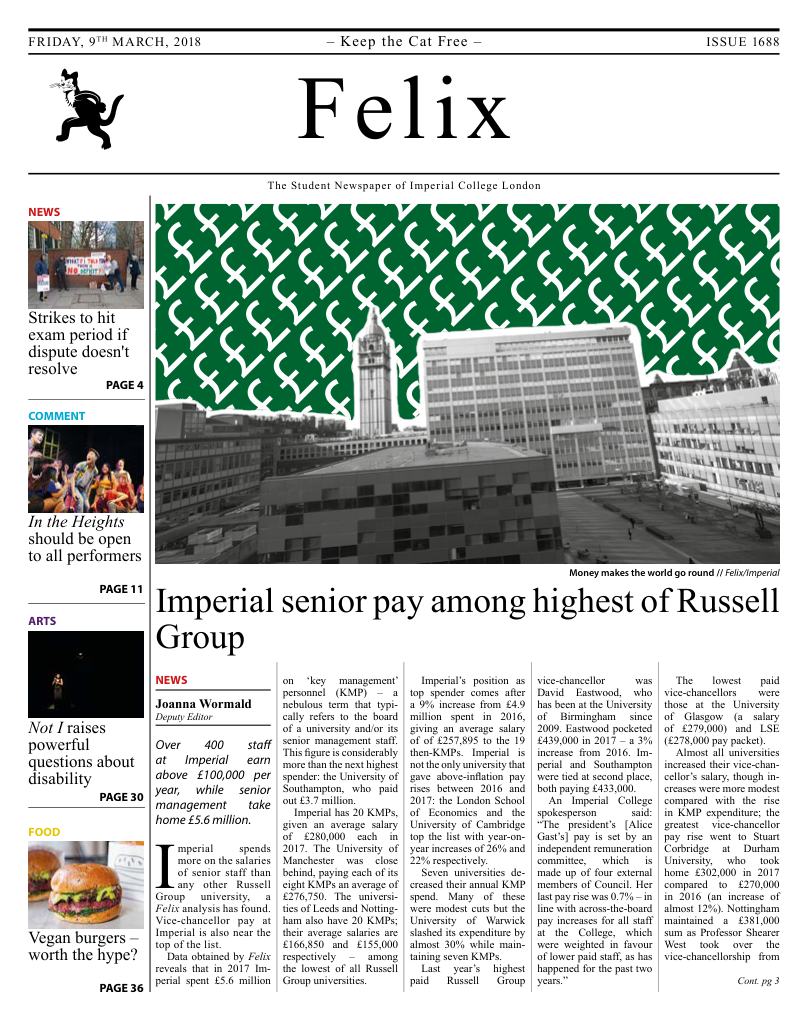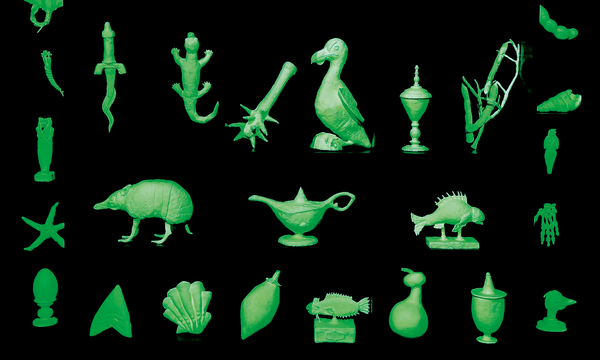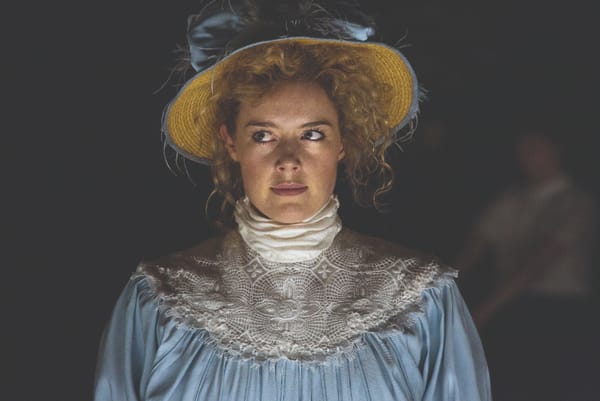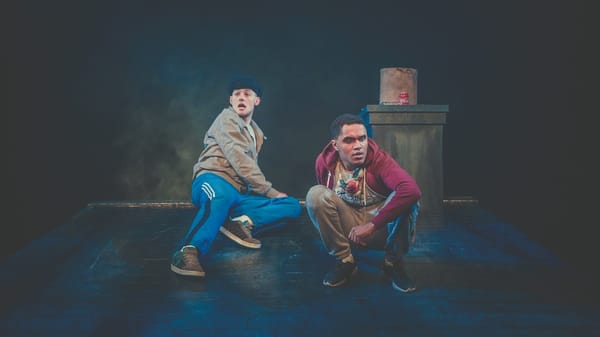Ben Whishaw delivers layered performance as Brutus
Innovative staging, classic rock and modern costuming, makes The Bridge’s adaptation an unique experience.

There was a time we killed the King/ We tried to change the world too fast/ Now we have got another King/ He is no better than the last.” – I found this play resonated rather neatly (or should I say vice versa) with the lyrics from Les Misérables ’ musical film in 2012. In this modern-dress production of Shakespeare’s Julius Caesar in Bridge Theatre directed by Nicholas Hytner, the relations between populism and autocracy was explored with a new layer of complexity granted by the promenade experience. The play started with live rock music. After Caesar’s triumphant return from war, senators Cassius and Brutus feared he had become too powerful and might accept the offer to become the emperor of Rome.
Though Brutus hesitated to take action, he was eventually convinced by Cassius. The two planned the assassination with their conspirators. On the Ides of March, Caesar ignored multiple warnings that a assassination might take place, including the one from his wife Calpurnia, and went to the Senate.
Suddenly, gunshot tore through the air, and the crowd fell to the ground in shock, revealing the conspirators holding their guns. Caesar was shot and paralysed on his throne, and then he saw Brutus, his very dear friend among the assassins. Silence fell, tension built, and was resolved by the famous line: “Et tu, Brute?” Then, Caesar opened his arms, accepting his inevitable death, and was killed by Brutus’ final shot. Brutus delivered a speech to the public explaining the reason of the assassination. He claimed though he loved Caesar, he loved Rome more, and he did what he did for the liberation of its people. Absurdly, when the crowd came to accept and support Brutus for his actions, they exclaimed “Let him be Caesar!”, completely missing Brutus’ point, echoing with Cassius’ previous statement regarding Caesar: “I know he wouldn’t be a wolf if the Romans didn’t act like sheep”. Antony, Caesar’s supporter, was allowed to give a speech at the funeral. Though he promised not to blame the death of Caesar on the conspirators, Antony secretly swore to avenge Caesar, and incited the public against Brutus. Antony teamed up with Octavius and Lepidus to fight Brutus and his accomplices. The war ended with Brutus and Cassius both committing suicide. After Antony found their bodies, he praised Brutus as “the noblest Roman of them all” and returned to Rome to celebrate his victory.
“No two people’s experiences of the play will be the same”
The play made some interesting adaptations to suit its modern-dress production. The assassination was done by gun instead of knife, giving it a more contemporary visual and sound impact. Furthermore, in the original play, Antony provoked animosity of the crowd towards Brutus and his accomplices by allocating each wound on Caesar’s body to a particular conspirator. In this version this was done by allocating the tears on the lining of Caesar’s suit left by the bullets.
Marcus Brutus was an ambiguous character. He was driven by both the greater good and self-interest, though he committed a dreadful murder he was nevertheless driven by his morals. Ben Wishaw brought a layer of irony to this noblest murderer, entertained the crowd to disbelieving laughter when he tried to justify his motivation. Michelle Fairley delivered an eloquent and precise performance as Caius Cassius. She was determined and manipulative, cruel but not without tenderness. David Calder sold his Caesar as a populist with authority and ego; his personal charisma won the cheers of the audience when he marched across the crowd. David Morrisey gave a passionate and opportunistic Mark Antony, and Adjoa Andoh was simply spectacular as Casca.
“Michelle Fairley delivered an eloquent and precise performance”
Bridge Theatre is a very intimate space. The stalls seating was removed for this play to give audience with standing tickets a promenade experience as one of the mob in the play. The round staging limited the stage settings, but this was counterbalanced by the atmosphere created by the lighting and sound designed by Bruno Poet and Paul Arditti, led by the stage designer Bunny Christie. Spatial flexibility was also achieved by the rises and falls of different parts of the stage, which, apart from conveying the play with further dimensions, aided the dynamics of the crowd. You can choose your own perspectives throughout the play – either from the front or the side, and either wide-angle from distant or close-up from beside the stage – and hear different conversations in the crowd. At the end of the night, you will leave with your unique montage, knowing that no two experiences would be the same.
This play is ultimately about an attempt to end dictatorship with the death of the dictator. We can see in retrospect that the assassination led to a series of civil wars, which resulted in autocracy for the rest of Rome’s history. This play has remained so contemporary because history continually repeats itself. What matters is not the fall of the dictator, but who and what follows him.
4 Stars
Where? The Bridge Theatre When? 20th January – 15th April How Much? £15







